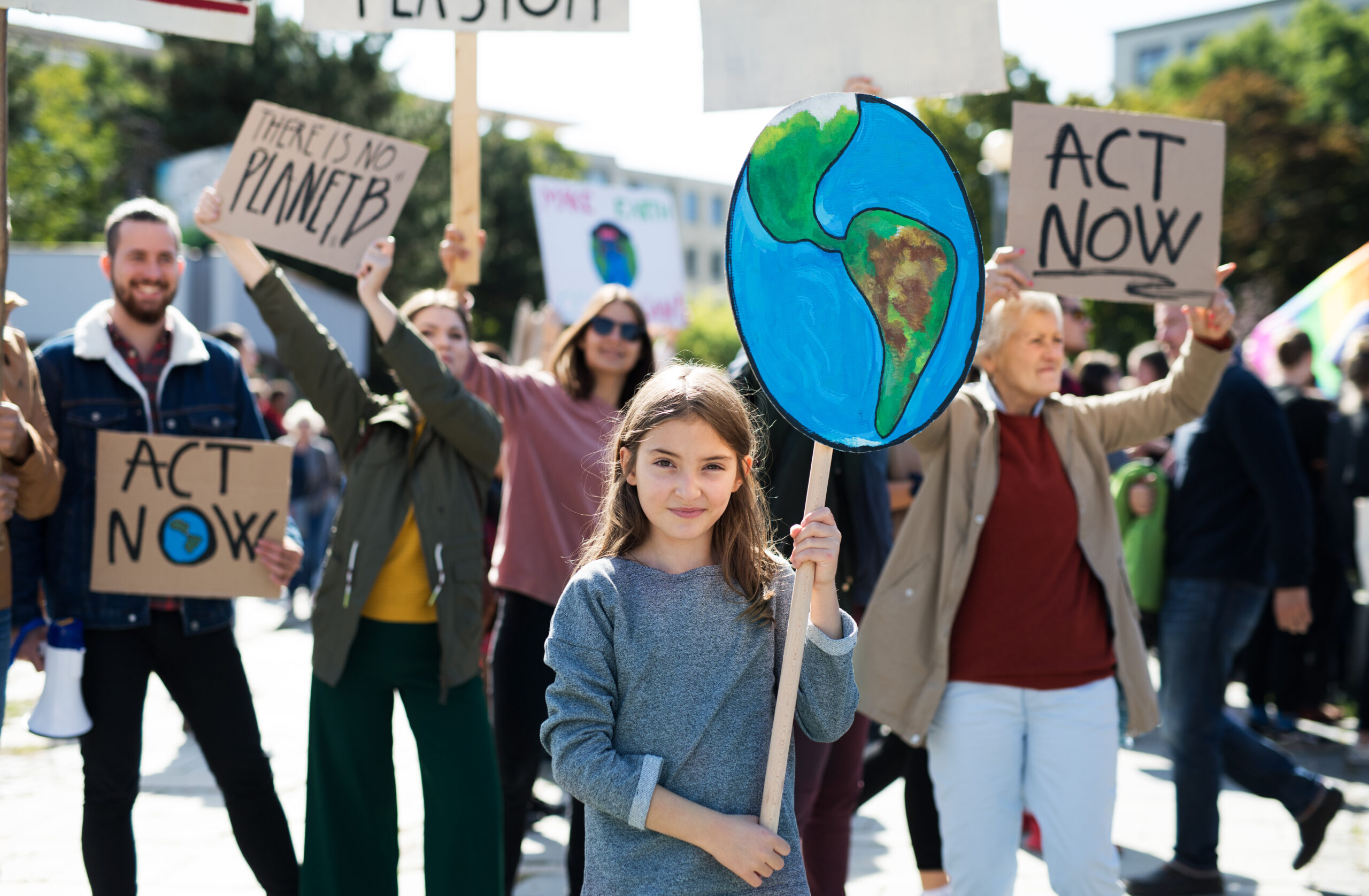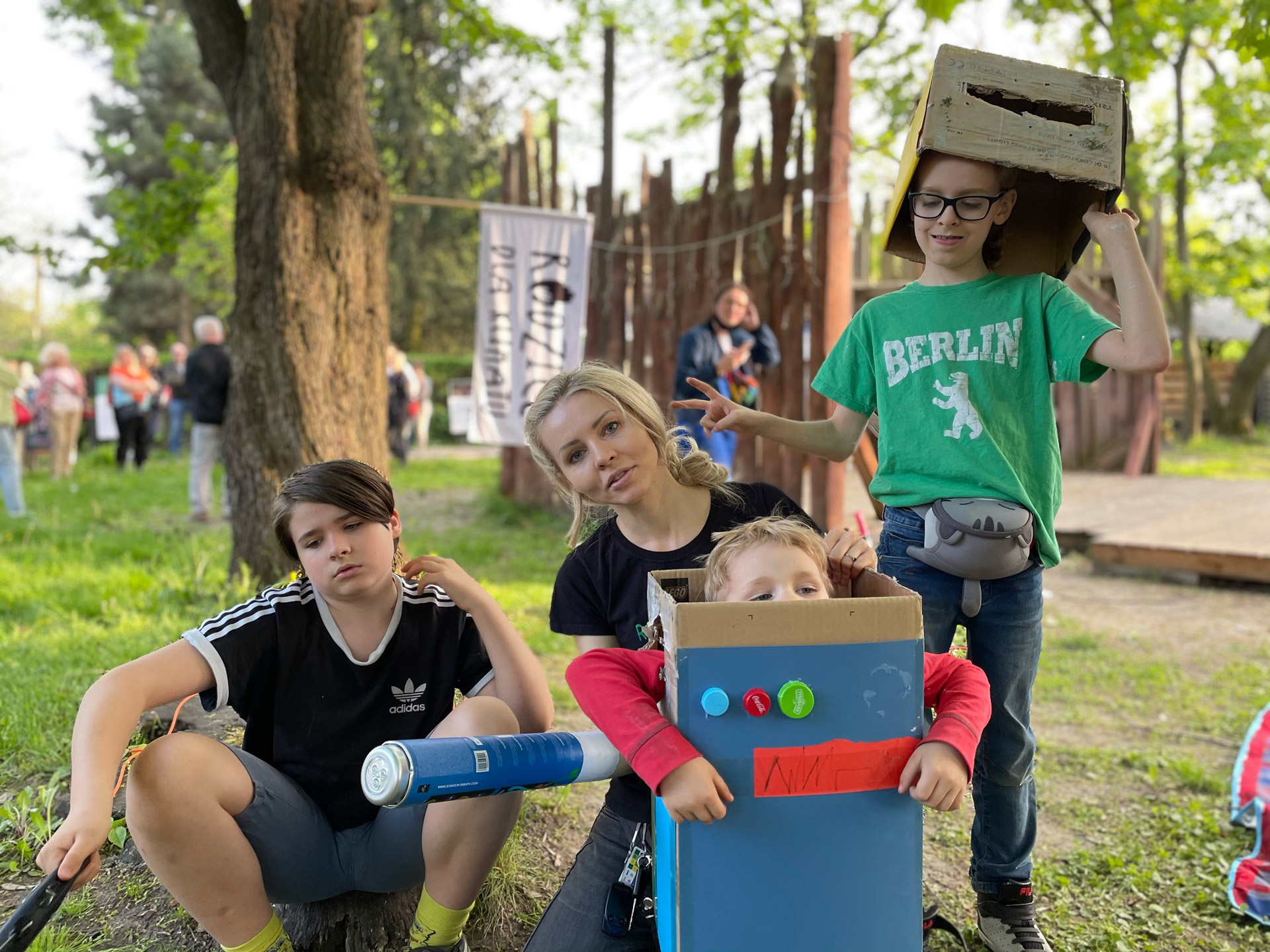Don’t say “It’ll be all right”
and other tips for talking to children about the climate crisis
and other tips for talking to children about the climate crisis
 Photo: Courtesy of Halfpoint/Adobe Stock
Photo: Courtesy of Halfpoint/Adobe Stock
The bad news about climate change has reached children: they hear about it in news reports, school lessons and everyday conversations. They also realise that we adults aren’t doing enough to fix it. In a UK survey of 2,000 children aged 8 to 16, nearly three-quarters said they were worried about the planet; one in five said they’d had a nightmare about climate change; and 40% said they didn’t trust adults to solve it (Atherton, 2020).
In a separate study of 10,000 people aged 16–25 in ten countries, 75% said the future is frightening because of climate change, and some 65% said the government is failing young people and lying about the impact of its actions (Marks et al., 2021).
Information about climate change – and the attendant anxiety – no doubt reaches younger children too, so parents and caregivers need to help them process it. But how can we talk to small kids about climate change without making them feel powerless, apathetic, or even severely anxious?
‘We need to start talking to children about climate change at an early age, but in age-appropriate ways.’
Based on my own research in Sweden for the book Prata med barn om klimatet (Talk to children about climate), and my work in climate communications and the global parent-activist movement, I’ve concluded that we need to start talking to children about climate change at an early age, but in age- appropriate ways. The main reason is described above: odds are, they’re already thinking about it.
We should encourage the smallest children to play in nature, to show that we value their connection to plants and animals; 7- to 8-year-olds are ready to gently hear more complex information, but linked to their own lives and the communities around them.

For Mother’s Day Night of Museums, the Polish climate-parent group organised an open-air ourothermother exhibition. The event included discussions and workshops/activities for children on creating recycled toys and caring for plants. Warsaw, Poland. Photo: Wojciech Waskiewicz
Don’t:
1. Expose very young children to climate-related news for adults. Seeing extreme weather events and other human tragedies unfold can be terrifying, especially for young children. Instead, look for age-appropriate news, stories or books to explain the topic.
2. Say that young people will solve the climate crisis. The next few years are critical. Action needs to be taken long before most of today’s youth become adults, or can vote. It’s up to adults to take the lead.
3. Say that “everything will be all right”. Children will see drastic changes in the world around them as they grow up, and they have a right to the tools, knowledge and support to help them through future changes. Denying that there’s a problem can make children feel they’re not being heard, or that they’re being lied to.
Do:
4. Keep calm and keep it simple. Tell the truth with equanimity, using age-appropriate language. Young children don’t understand complex science. Instead, discuss climate through stories about people, places, nature and animals that they can relate to: Why is the arctic fox disappearing in northern Sweden? Should we cycle to school? What’s important about worms?
5. Offer hope. Try phrases like “Yes, climate change is a serious problem, but humans created it in the first place, so we can also solve it. In fact, we already know how to make it better. But it’ll take lots of people to do it.” Describe the people, organisations and companies working to improve the situation.
6. Discuss solutions. The younger the child, the more important it is to talk about solutions. Make a point of looking for – and talking to your child about – positive developments around you, and ask what they’d like to do to pitch in.
7. Take action together. Offer various options, such as taking part in local litter clean-ups, identifying and supporting a green organisation, or writing to a local politician about the need for better cycle paths. Climate action helps young people manage their anxiety, and creates empowerment and a feeling of agency. It’s also good to normalise sustainable behaviour and active citizenship from an early age.
8. Connect with nature. Children benefit emotionally and cognitively from being in nature, and it’s key to pro-environmental behaviour later in life. Make the outdoors part of your everyday life by, for example, walking a dog in the woods, growing herbs in a window box, or going to a park. Discuss how humans are part of nature, and encourage children to help animals in distress.
9. Process your own feelings. Allow yourself to “feel the science” and name your emotions. Talk about your deepest fears with other like-minded adults, to avoid projecting too much negativity when you’re talking to children. Remember that difficult feelings are a healthy sign that we’ve understood the situation, and can help us find strength to take action ourselves.
10. Make space for children’s emotions. They’re often natural-born planet stewards who want to keep the world happy and healthy. Allow them to express their concerns about nature, animals and the planet. Use drawings to help them put their feelings into words. By processing feelings and information together, both children and adults can – paradoxically – become more hopeful, and more energised to keep working for change.
See how we use your personal data by reading our privacy statement.
This information is for research purposes and will not be added to our mailing list or used to send you unsolicited mail unless you opt-in.
See how we use your personal data by reading our privacy statement.